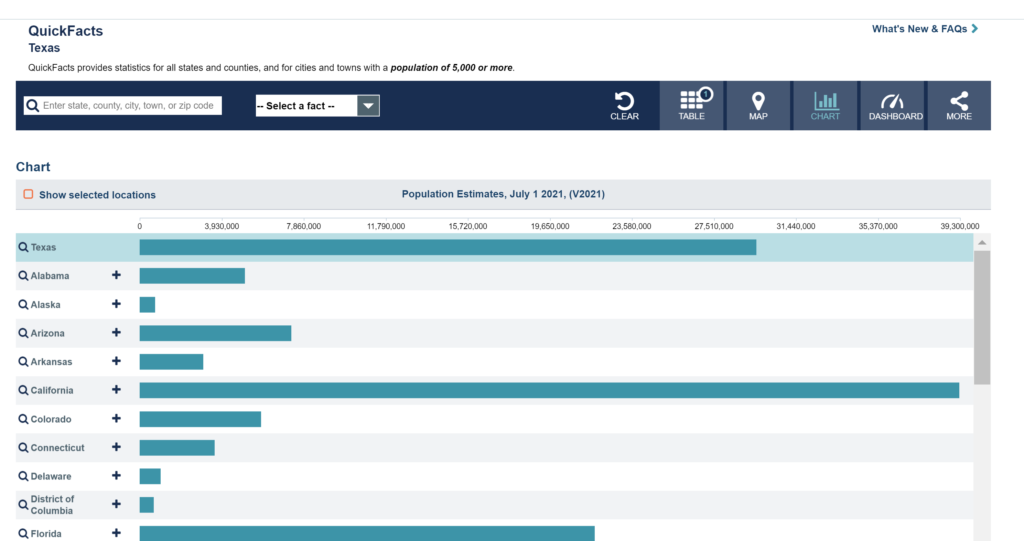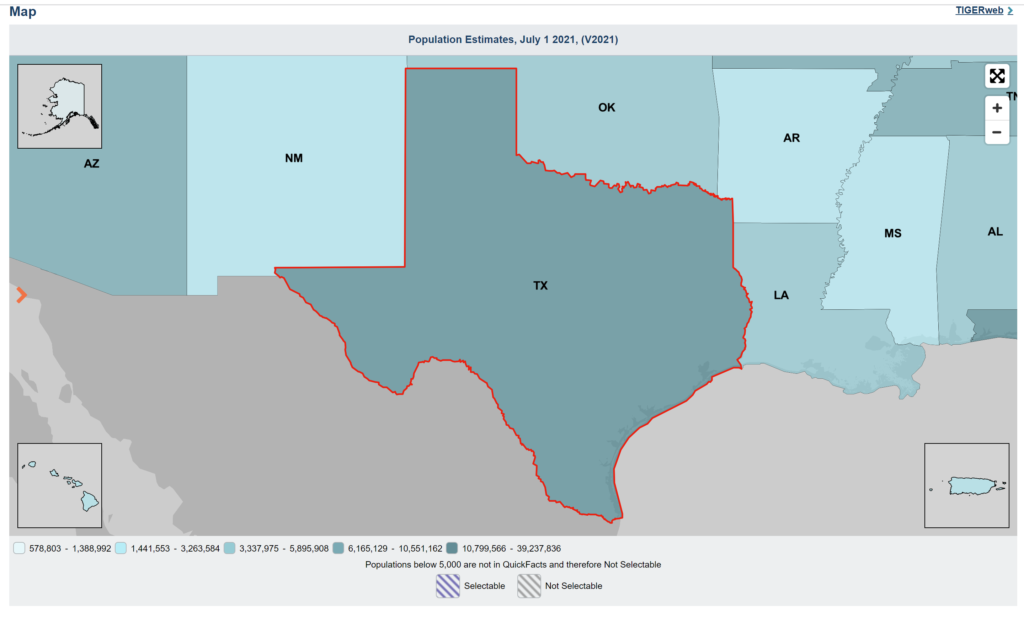Why is everyone moving to Texas?

Downtown Dallas, photo by Francisco Jose Zangerolame
Why is everyone moving to Texas? Move to Texas and Find Out the Reason Why Everyone is Moving Here.
You might think that with all the biggie changes happening in the U.S., people would be moving to a more stable location. But the opposite is true. Instead, The Lone Star State is experiencing an unprecedented population boom—particularly its booming metro areas. In fact, from 2015 to 2020, the number of people who live in Texas grew by 42 million. That’s more than the entire rest of the country added during that same time period! You see, for many Americans fleeing a volatile job market or broken housing market back home, moving to Texas is an opportunity they can’t pass up. And with good reason: The Lone Star State has everything you need to make it as an entrepreneur or a professional couple looking to start a family here. In this post, we’ll take you through what New Texans should know before they make their move.
Texas is one of the most attractive states to relocate to in the country. The state has a low unemployment rate and a growing economy, which makes it a good place to start a new business or start a new career. In addition, the state is home to a number of major universities, including the University of Texas and Texas A&M University.
The state also has a low cost of living, with an average home price of $169,000 and an average rent of $1,250 per month. And because Texas has such a low cost of living, it’s easy to save money on your monthly bills by moving here. For example, you can save on your car insurance by choosing a smaller car or by switching to a less expensive plan. And if you’re looking for a place to live, you can save money by choosing a smaller apartment or house.
Liveable and affordable for everyone.
A large part of the appeal of living in Texas is the fact that it is both a very affordable state and a very affordable country. With the current exchange rate, moving to the Lone Star State will cost you a total of only $4,372 per year! Compare that to the cost of living in New York City ($4,976), San Francisco ($5,476), or even Chicago ($5,756). If you’re from a family that makes a lot of money and you have a large family to support, you might be interested in learning more about the expanding “middle class” in Texas. The average household income in the state is $81,688, which is highly competitive with other major economy regions of the country. (Source: IRS.Gov)
Two of the best universities in the world.
Texas’s two largest universities—the University of Texas (UT) and the University of Texas at Austin—are extremely well-regarded around the globe. With a combined student enrollment of thousands, they are considered to be some of the most prestigious institutions in the world. If you’re interested in business, engineering, or any field that requires a high school diploma or a generally advanced degree, UT and UT Austin have several bachelor’s degree programs that will likely allow you to get into a top-notch job straight out of college. In fact, the percentage of students who complete a degree at UT or UT Austin is higher than at any other university in the United States.
The University of Texas (UT) is one of the largest universities in the United States. It is also one of the most prestigious universities in the country, with a reputation for high academic standards, research, and student success. UT is also one of the most diverse universities in the country, with students from all over the world.
The University of Texas is a public research university located in Austin, Texas, United States. It was founded in 1883 and has been a member of the Association of American Universities (AAU) since 1958. The university offers more than 160 undergraduate and graduate degree programs in a wide range of disciplines. UT is also home to the nation’s largest academic medical center and one of its largest research universities. The university is consistently ranked among the top public universities in the world and has been recognized for its commitment to diversity and inclusion. UT is consistently ranked among the top public universities in the world and has been recognized for its commitment to diversity and inclusion. UT is also one of the top research universities in the nation, with more than $1 billion in research expenditures per year. The university’s academic reputation has been bolstered by its strong record of producing high-achieving students who go on to successful careers in a wide range of fields including medicine, law, business, engineering, and science.

World-class culture and scene
With so many new immigrants from countries such as India, China, and the Middle East coming to the U.S., it’s no surprise that the culture at large is becoming more cosmopolitan. The reason? More and more people are choosing to live in cities like Dallas, Houston, and Austin because they are more likely to encounter people with different cultures and lifestyles than they would normally find in a small town back home. This is particularly true for the arts, with many new immigrants coming to the U.S. to pursue a career in the arts or as a cultural depictions. The city of Dallas has a large concentration of creative companies and organizations, as well as world-renowned museums such as the Museum of Modern Art and the Art Institute of Chicago—all within a short drive from one of the state’s largest metro areas.
Dallas is known for its eclectic mix of art, architecture, and culture. The city is home to many of the world’s top museums and cultural institutions, including the Museum of Modern Art, the Art Institute of Chicago, and the Dallas Museum of Art. The city is also home to many creative companies and organizations, including Google, Facebook, and Twitter.
Dallas is also known for its diverse population. The city is home to many people from all over the world, including people from many different countries. This makes Dallas a great place to live because it offers a lot of opportunities for people to learn about different cultures and learn about different ways of life.
The best place to start a business.
While you might have heard that business is bad in Texas, that’s not the case in general. With the current state of the business climate, there are plenty of opportunity for entrepreneurs here. Entrepreneurs are more likely to make a success of their businesses in this state than back home. As the state’s business center, the Dallas-Fort Worth area is home to a number of well-regarded entrepreneurial accelerators and incubators, which connect small businesses with capital and resources. The Entrepreneurs’ Accelerator at UT-Arlington is one of them, and it’s one of the most successful in the country. The program has created more than 1,300 jobs since it launched in 2011.

Job opportunities for everyone
With more than 1 million people moving to the state each year, you’d expect there to be a large number of unemployed New Yorkers or San Franciscans. But that’s not the case at all. The number of unemployed people in Texas is actually lower than it is in New York or California. This is likely because with more than half the state’s workforce already working for someone else, the people who are unemployed in Texas are looking for jobs that don’t require a college degree. If you have a basic understanding of accounting, marketing, or other technical fields that aren’t very prevalent in the business world, consider moving to Texas and helping to build a business.
The unemployment rate in Texas is 2.8 percent, which is lower than the national average of 3.7 percent. The state has a relatively low unemployment rate because of its large population and its low cost of living. In addition, Texas has a low proportion of people who have been out of work for more than six months.
Texas has a large number of people who have been out of work for more than six months. This is because the oil and gas industry is one of the main reasons that the state has such a high unemployment rate.
Conclusion
There are many reasons to move to Texas. The state has a strong economy and is growing rapidly, making it a great place to live, work, and raise a family. In addition, Texas is home to some of the best universities in the country, making it a great place to learn.
The Texas A&M University System is one of the most comprehensive in the country and has world-class universities that offer a wide range of undergraduate and graduate programs. With a population of over 1 million students and more than 100,000 faculty members, it is an ideal place to study. The city of College Station is a major center for research and business communities. Texas A&M has a rich history and culture that makes it a great place to live, work, and raise children.
- Texas has a diverse climate, making it a great place to live and work.
- The state offers great opportunities for education, including many universities with world-renowned programs.
- Texas is also home to a number of Fortune 500 companies.
If you’re planning on moving to Texas, you’ll want to make sure you’re aware of the advantages the state has to offer. With fantastic weather year-round, low taxes, and a booming economy, the state is sure to be a great place to call home. If you’re ready to make the move, check out our guide to The Lone Star State’s cities and get ready for an exciting new life!
Bonus for Business Owners (Source: Texas.Gov)
If you are considering moving your business to Texas from another state, you will want to register it once you choose a location. If your business is a separate legal entity, you will need to register it with the Texas Secretary of State’s Office in order to transact business in Texas. These FAQs on registering a business in Texas may be useful to you. If you are a sole proprietor or a partnership using a business name other than your own, you will need to register your business name (often called DBA or assumed name) with your county clerk’s office.
Business Tax Responsibilities
You will need to determine the potential tax responsibilities that your business will have once registered in Texas. Federal tax obligations are filed through the Internal Revenue Service (IRS). State tax filings are done through the Texas Comptroller of Public Accounts (CPA). If your business trades online, this online Marketplace Seller tax information is useful. For questions about local business and property taxes, consult your county’s appraisal district or tax assessor-collector. Find your local appraisal district and tax office on the CPA’s website. The CPA also offers helpful tax training.
Business Licenses and Permits by Business Type
A general business license is not required in Texas. However, it is important to determine necessary licenses, permits, certifications, registrations or authorizations for a specific business activity, at the federal, state and local level. Our 2022 Texas Business Licenses & Permits Guide offers a comprehensive a listing of state permits and licenses required for business enterprises in the state. For more information or assistance, please contact the Texas Economic Development and Tourism’s Business Permit Office (BPO).
Business Employer Requirements
If planning to employ staff, determine federal and state employer requirements. To learn more about Texas employer resources, visit the Texas Workforce Commission’s webpage for businesses and employers.






